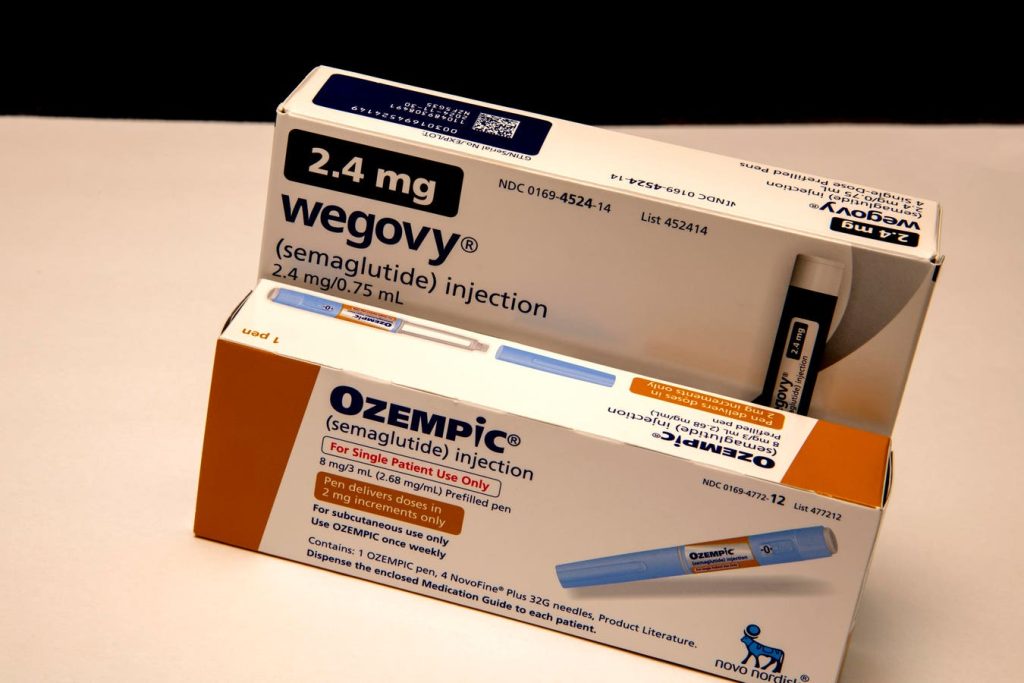Trump Faces Complex Decision on Medicare Coverage for Weight-Loss Drugs
President-elect Donald Trump is poised to confront a significant healthcare policy decision regarding Medicare coverage for popular weight-loss drugs like Ozempic and Wegovy. These GLP-1 receptor agonists, while effective in treating Type-2 diabetes and certain heart conditions, carry hefty price tags, exceeding $900 per month in some cases. Although the Biden administration initiated a rule change to allow Medicare and Medicaid coverage for these drugs for weight loss, the final decision rests with the incoming Trump administration. This presents both a political opportunity and a series of challenges for the president-elect.
The crux of the issue lies in the drugs’ high cost and the potential financial burden on Medicare. While drug manufacturers offer discounts to individual consumers, these discounts don’t extend to Medicare. Significant price disparities exist internationally, with Ozempic’s list price in the US being substantially higher than in Canada and France, suggesting considerable room for negotiation. The 2022 Inflation Reduction Act empowered Medicare to negotiate drug prices, but this authority initially applies to only a limited number of drugs, and the reduced prices wouldn’t take effect until 2026 at the earliest. Ozempic and Wegovy are potential candidates for future negotiation rounds, but any resulting price reductions wouldn’t be implemented until 2027.
This timing discrepancy creates a potential opening for Trump. By approving Medicare and Medicaid coverage for these weight-loss drugs contingent on immediate price reductions from manufacturers, Trump could achieve a politically popular outcome while potentially saving the government billions of dollars. The expanded market access provided by Medicare coverage would likely incentivize drug companies to agree to lower prices. However, this approach also presents several potential obstacles.
Trump’s stance on government negotiation of drug prices has been inconsistent, creating uncertainty about his commitment to this approach. During his 2016 campaign, he supported the concept, but he didn’t pursue it while in office. Furthermore, many congressional Republicans, including key Trump allies, have vowed to repeal the drug price negotiation provisions of the Inflation Reduction Act. This internal division within the GOP could complicate any attempt by Trump to leverage Medicare coverage for price concessions.
Adding to the complexity are the differing views within Trump’s own prospective administration. His HHS nominee, Robert F. Kennedy Jr., has criticized anti-obesity drugs, advocating for lifestyle changes instead. Conversely, his CMS nominee, Dr. Mehmet Oz, has actively promoted these drugs. This internal conflict could hinder a unified approach to the issue. Moreover, the projected cost of covering these drugs for weight loss, estimated at $40 billion over ten years by the Congressional Budget Office, poses a challenge to Trump’s fiscal priorities. While increased access to the drugs could lead to long-term cost savings by reducing obesity-related health problems, the CBO estimates these savings to be relatively modest, offsetting only about 10% of the increased drug costs.
Furthermore, the drugs’ side effects and the need for continuous self-injection, which some patients find inconvenient, raise questions about long-term adherence. Many patients discontinue treatment after reaching their weight goals, potentially limiting the drugs’ overall effectiveness and jeopardizing long-term health benefits. The decision facing Trump is multifaceted, balancing the potential political gains of increased access to weight-loss drugs against fiscal concerns, internal political divisions, and the complexities of the healthcare system.
The president-elect faces a choice between immediate political gain and long-term budgetary considerations. Approving Medicare coverage for weight-loss drugs could be a popular move, but it would also increase federal spending, albeit potentially offset by reduced healthcare costs associated with obesity-related illnesses. Conversely, denying coverage could draw criticism, especially from those who view these drugs as a crucial tool for combating the obesity epidemic. Trump’s decision will likely be influenced by a combination of political calculations, fiscal priorities, and the advice of his cabinet nominees, whose differing views on the matter add another layer of complexity.
Trump’s eventual decision on this issue will reveal much about his healthcare priorities and his approach to navigating complex policy challenges. Will he prioritize short-term political gains and expand access to these drugs, even at a significant cost to Medicare? Or will he prioritize fiscal conservatism and potentially face criticism for limiting access to potentially life-changing medications? The answer will have significant implications for millions of Americans struggling with obesity and the future of Medicare spending. The decision also carries implications for the pharmaceutical industry, as it could set a precedent for future negotiations over drug prices and Medicare coverage.
The political calculus is complex. Approving coverage could be seen as a victory for patients and a boost to Trump’s popularity, particularly among those struggling with obesity. However, it would also increase federal spending, a move that could be criticized by fiscal conservatives. Conversely, denying coverage could spark backlash from patient advocacy groups and those who see these drugs as a critical tool for improving public health.
The decision holds weight beyond the immediate issue of weight-loss drugs. It could signal Trump’s broader approach to healthcare policy and his willingness to engage in government negotiation of drug prices. His decision will also have a ripple effect on the pharmaceutical industry, influencing future drug development and pricing strategies. Finally, it will affect the lives of millions of Americans struggling with obesity, determining their access to potentially life-changing medications.
The decision is further complicated by internal divisions within the GOP and even within Trump’s prospective administration. Reconciling these conflicting viewpoints while addressing the fiscal implications and potential political fallout will require careful consideration and strategic maneuvering. Trump’s final decision will be a defining moment in his second term, shaping his legacy on healthcare and setting the tone for future policy debates.
Ultimately, the decision represents a microcosm of the challenges facing the incoming administration. It requires balancing competing interests, navigating political divisions, and making difficult choices with significant consequences. How Trump handles this decision will offer insight into his governing style and his priorities for his second term.












